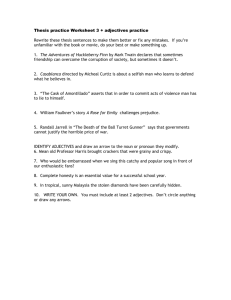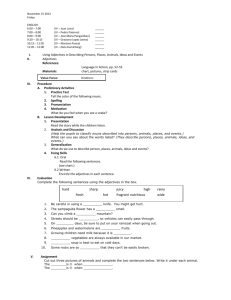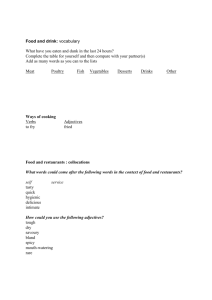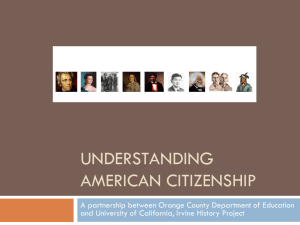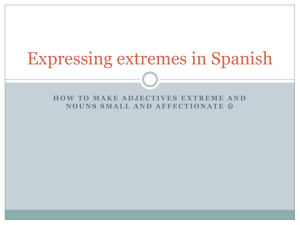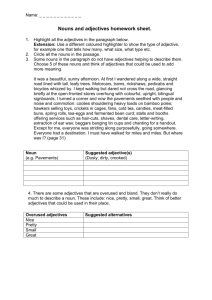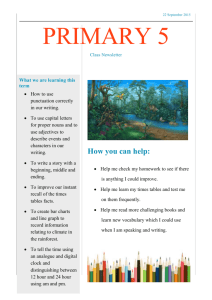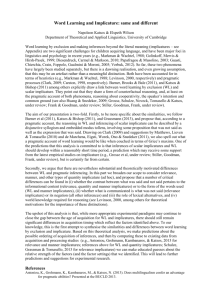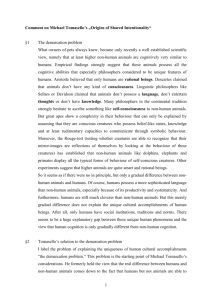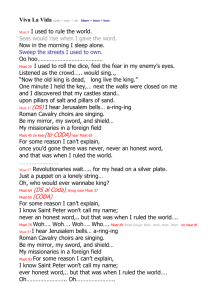Adjective comprehension by 2 to 7-year-old Dutch
advertisement
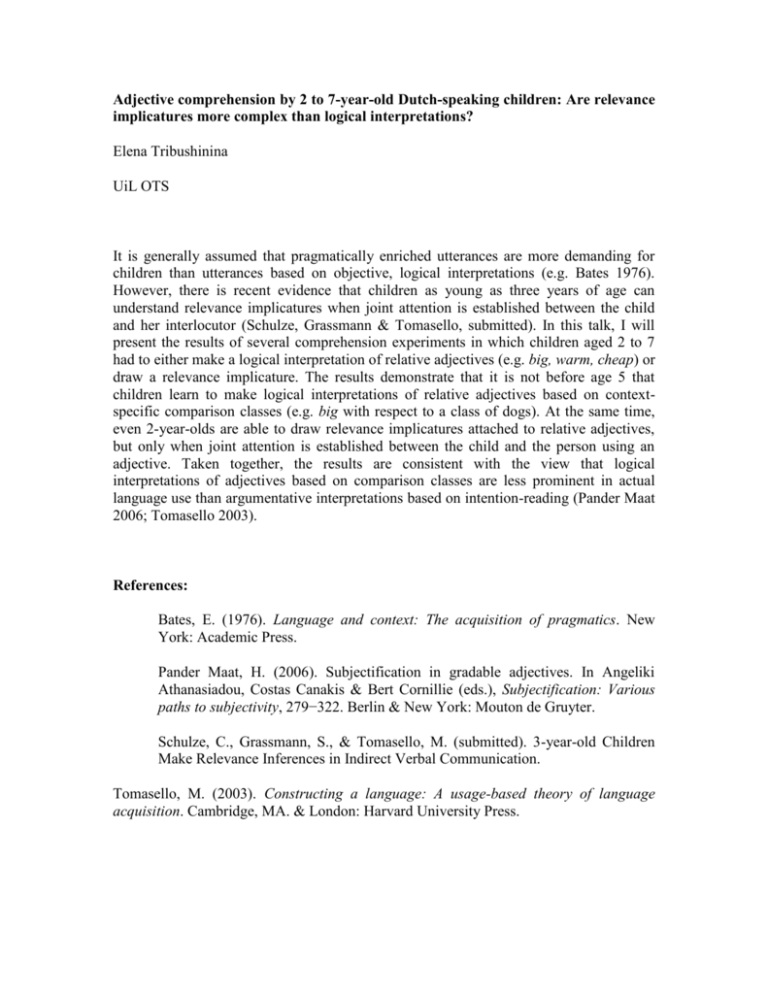
Adjective comprehension by 2 to 7-year-old Dutch-speaking children: Are relevance implicatures more complex than logical interpretations? Elena Tribushinina UiL OTS It is generally assumed that pragmatically enriched utterances are more demanding for children than utterances based on objective, logical interpretations (e.g. Bates 1976). However, there is recent evidence that children as young as three years of age can understand relevance implicatures when joint attention is established between the child and her interlocutor (Schulze, Grassmann & Tomasello, submitted). In this talk, I will present the results of several comprehension experiments in which children aged 2 to 7 had to either make a logical interpretation of relative adjectives (e.g. big, warm, cheap) or draw a relevance implicature. The results demonstrate that it is not before age 5 that children learn to make logical interpretations of relative adjectives based on contextspecific comparison classes (e.g. big with respect to a class of dogs). At the same time, even 2-year-olds are able to draw relevance implicatures attached to relative adjectives, but only when joint attention is established between the child and the person using an adjective. Taken together, the results are consistent with the view that logical interpretations of adjectives based on comparison classes are less prominent in actual language use than argumentative interpretations based on intention-reading (Pander Maat 2006; Tomasello 2003). References: Bates, E. (1976). Language and context: The acquisition of pragmatics. New York: Academic Press. Pander Maat, H. (2006). Subjectification in gradable adjectives. In Angeliki Athanasiadou, Costas Canakis & Bert Cornillie (eds.), Subjectification: Various paths to subjectivity, 279−322. Berlin & New York: Mouton de Gruyter. Schulze, C., Grassmann, S., & Tomasello, M. (submitted). 3-year-old Children Make Relevance Inferences in Indirect Verbal Communication. Tomasello, M. (2003). Constructing a language: A usage-based theory of language acquisition. Cambridge, MA. & London: Harvard University Press.
